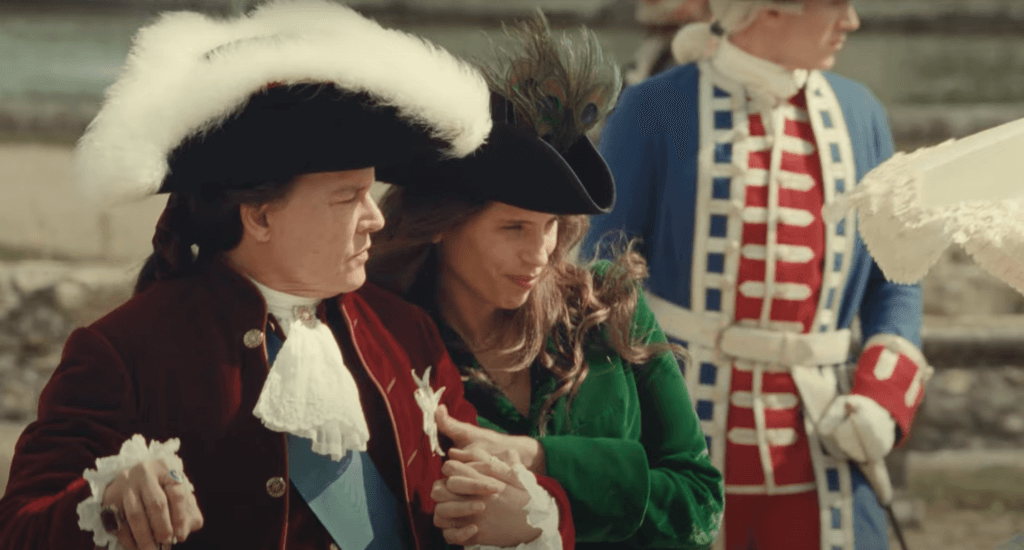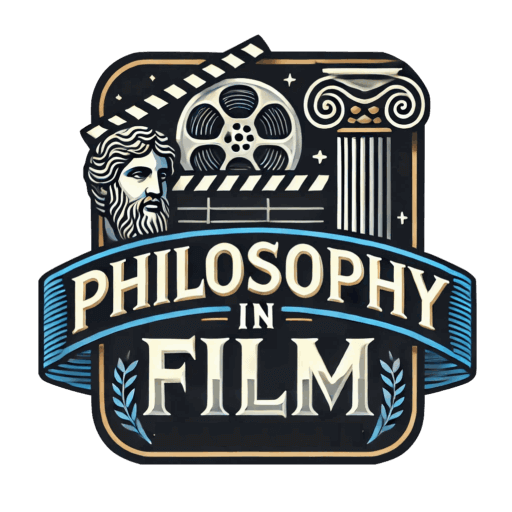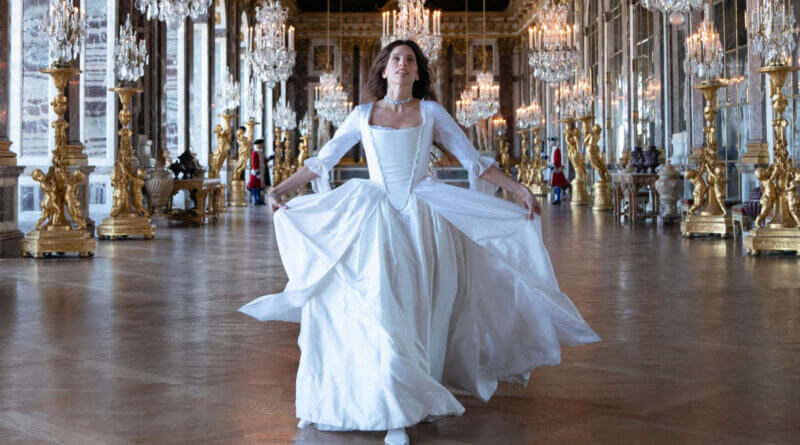Jeanne du Barry (2023), A Boring and Pointless Historical Farce
Promotion for Jeanne du Barry (2023) was confusing from the start, as all of the posters and teasers featured the bloated, stoic face of Johnny Depp. As the film’s narration began in French, I wondered why Depp, an American with adequate but not altogether impressive abilities in the art of speaking French, would be cast as King Louis XV. But this is just the tip of the iceberg when questioning the many, many terrible decisions that went into Maïwenn’s tedious, directionless, and historically inaccurate recounting of the life of King Louis’ scandalous mistress, Madame du Barry.
It’s strange when a film produced in a country steeped in history and very proud of its historical, cultural, and artistic contributions to the world bungles its own past with such unrepentant fervor. You could learn more about the life of Jeanne du Barry by reading Antonia Frazer’s well-researched book, Marie Antoinette: The Journey, than you ever could from watching this two-hour sleeping pill. I’d like to think that Maïwenn was so passionate about bringing an undervalued character in the final days of the Court of Versailles to life that she insisted on writing, directing, producing, and starring in the film, but she managed to disappoint in virtually every way possible nonetheless.
From the opening scenes, there is a lifelessness to the film that’s difficult to put into words. We learn about the earliest days of her life through bare-bones narration and a few set pieces. The only real information I took away from the first 30 minutes of the film was that the heroine was born Jeanne Bécu, a commoner with a sex drive, and was therefore shunned from polite society. Jeanne became a prostitute and, for one reason or another, made her way to Versailles, where she immediately caught the eye of King Louis XV.
What’s most baffling about this film is that there are almost too many criticisms to keep track of. Johnny Depp inexplicably plays the French King, and, presumably, since his French is not as good as the rest of the cast, he has just a handful of brief and muttered lines of dialogue throughout the entire film. The real Louis XV was a vivacious and lively character, but Johnny Depp’s Louis just sulks around in silence and a grim visage, like a corpse being held up by strings.
Maïwenn does no better as the titular character, who somehow gets relegated to a tertiary role whenever a more historically significant person enters the room. Marie Antoinette and King Louis XV draw more attention, leaving little room for Madame du Barry to plead her case. Even when du Barry is on screen, Maïwenn plays her with the same energy as a dead cat, unable to work up the courage to develop a personality.

And though Jeanne du Barry was filmed on location at the Palace of Versailles, there’s very little in the way of historical authenticity. Some events are rushed, while others are partially or completely fabricated. One bizarre detail is that the real du Barry was known for her garish and opulent fashion, but Maïwenn enters nearly every scene wearing the same dour white dress. She is visually upstaged by Louis’ petulant daughters, who wear giant beehive wigs that bear no resemblance to the actual wigs of 18th-century France.
Strangest of all is the lack of any characterization on the part of Jeanne du Barry. She was known for her lascivious nature and ability to make the King of France fall in love with her, against the wishes of nearly everyone else in Versailles. In the film, du Barry blends into the background, only showing tiny glimpses of sexual playfulness at the dining table, where she can be openly mocked by her detractors.
One could argue that Maïwenn should be permitted to have the creative freedom to recreate her character with her own artistic vision, which is a fair point. Sofia Coppola did it with excellent results in Marie Antoinette (2006), and even though I didn’t particularly enjoy Deborah Davis’ series about Marie Antoinette, she at least admitted that certain liberties were taken with the story to create a more modern, feminist retelling. But the same cannot be said for Maïwenn’s Jeanne du Barry. Liberties were taken, but to what end? What was she trying to say or accomplish? She didn’t modernize Versailles like Sofia Coppola, nor did she produce any new or interesting ideas about the people or the time.
She couldn’t even manage to make Madame du Barry sympathetic. The real life of the Comtesse du Barry was fascinating, yet you would never know it by watching the film. It starts to feel as though Maïwenn lost interest in her heroine halfway through and decided to focus on all the characters around her instead.
Another peculiarity is that the film (unsuccessfully) tries to be funny by showing courtiers awkwardly shuffling backward so as not to break the rules of Versailles and turn their backs on the King. Viewers are presumably meant to laugh, but toward the end of the film, Jeanne du Barry clumsily backs out of the room in tears as she says goodbye to her lover (the king) for the last time. It’s not poignant or funny, it’s just…bizarre.
Again, there are almost too many inconsistencies and strange artistic liberties to point out in a single review, but I cannot stress how poorly the film does at creating an interesting historical drama with dynamic characters. The history is questionable, the casting is atrocious (I can only assume Johnny Depp was brought in to drive ticket sales), and the writing and acting are glaringly amateur. If you have any appreciation for French history, costume dramas, or the art of filmmaking in general, stay far away from whatever Jeanne du Barry is supposed to be.
Jeanne du Barry (2023) Movie Rating: ★ out of 5
If you’d like to watch Jeanne du Barry (2023), the film will soon be available to stream, rent, or purchase via Amazon. For more film reviews like this one, be sure to check out the Philosophy in Film homepage!


Ridiculous, historically inaccurate movie, BAD ACTRESS